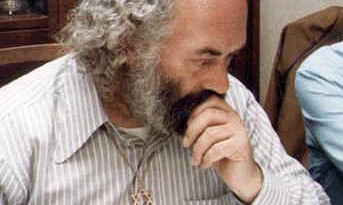Torah from my daughters
Once a week, as the Sabbath is nearing its close – at the time for “seudah shlishit,” the third Sabbath meal – I hold the “Leff Family Beit Midrash” with my three youngest daughters (my two oldest live in the US). We’ve started studying Pirkei Avot (Teachings of the Fathers), a collection of Jewish wisdom from the Mishnaic period (roughly 2,000 years ago).
Yesterday’s discussion helped me see a very familiar teaching in a new light, proving what Rabbi (R. Yehuda ha-Hasi) said: “I have learned much Torah from my teachers, more from my colleagues, and most of all from my students.”
The second teaching in Pirkei Avot is:
Shimon haTzadik (Simon the Righteous) was one of the last of the men of the Great Assembly. He used to say: The world is based on three things: Torah, Avodah, and Gemilut Chesed (usually translated “Torah, worship, and acts of kindness”).
This is a very popular teaching, also turned into a song, or I should many songs, there are many different melodies. Pretty much all Jewish kids learn the song in Hebrew school.
But what does it really mean? Why those three things?
After discussing who were the “Men of the Great Assembly,” our family beit midrash turned to those questions. Torah, of course, in context is not just the Pentateuch, but would also include, as Katherine pointed out, “oral Torah,” a.k.a. the Talmud. I would suggest that in context Torah could even include secular learning, as science illuminates the way in which God created the world, etc. So Torah is study and learning – so that you know what to do.
When I asked what’s “avodah,” my 9-year-old daughter Devorah originally went with the basic modern Hebrew definition: work. We discussed how to the rabbis “avodah” meant the temple service, which came to be replaced by prayer, so what likely was originally meant is the way it’s usually translated: worship. But on reflection, I like Devorah’s original definition better: work, or more broadly, action. “Torah” teaches us what to do. “Avodah” tells us that study is not enough, one must translate study into action.
If we know what to do, and we do it, what’s the point of “gemilut chesed,” acts of kindness? Isn’t that kind of superfluous?
No, it isn’t. One can know Torah and follow it, and still be “naval b’rshut haTorah,” a wicked person within the bounds of the Torah. It is possible to punctiliously follow the rules in the Torah, and still be unpleasant, or mean spirited, or worse. Just following Torah is not enough. R. Shimon is telling us we have to go “lifnim meshurat hadin,” beyond the letter of the law, we must be kind.
Put those three things together: learning, action, and kindness – and you have the basis for a world of peace, justice, and harmony. The kind of place we all want to live. The world stands on them, because when we take away any one of the three, the results are damaging to mankind.

